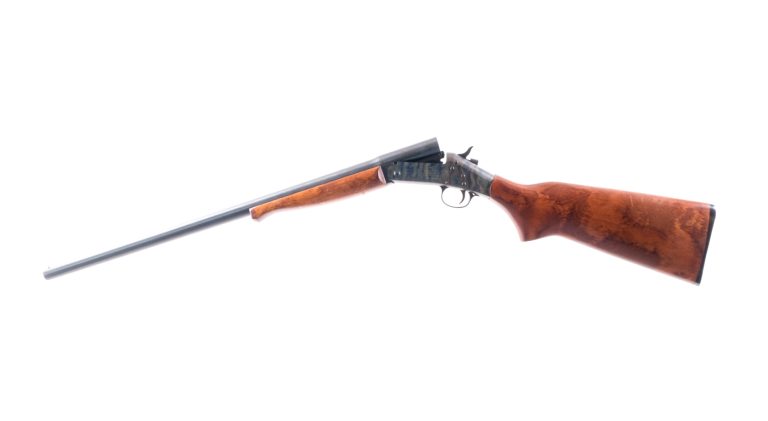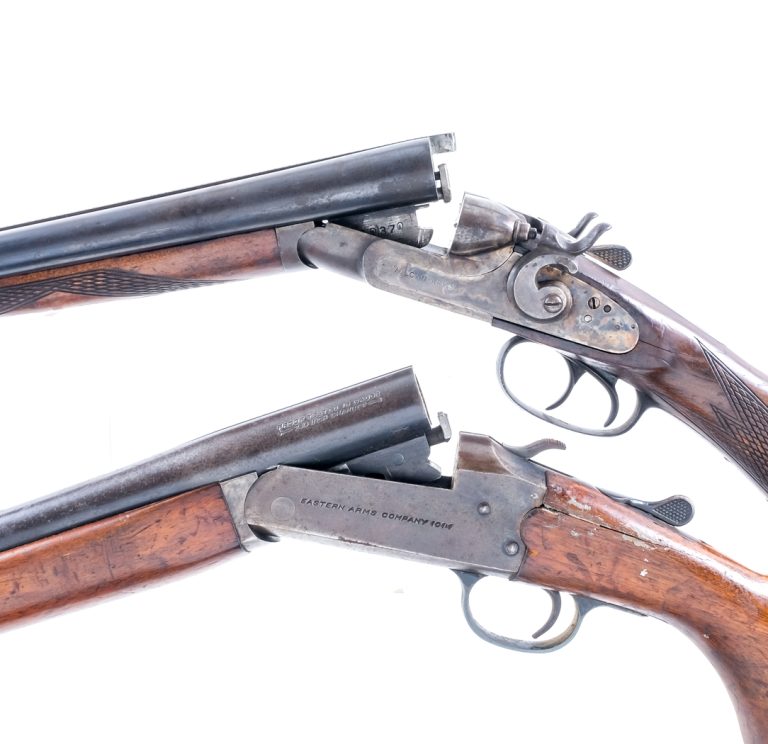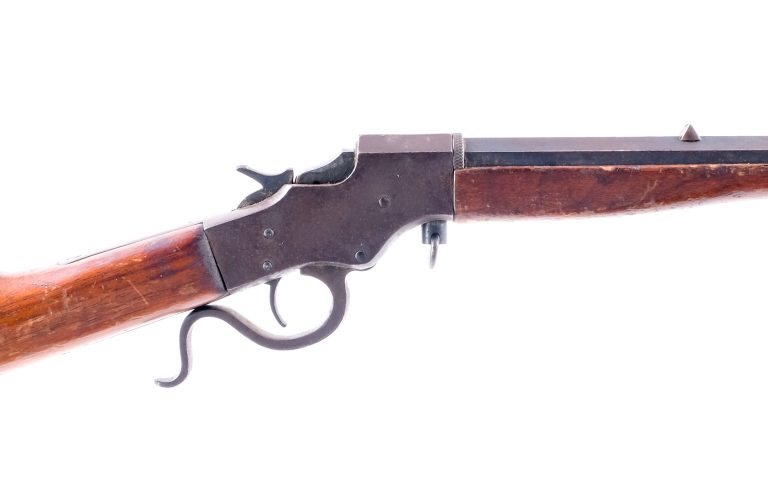Your Ultimate Guide to Selling Guns in Oregon: Legal Tips and Best Practices
- Home
- Your Ultimate Guide to Selling Guns in Oregon: Legal Tips and Best Practices
Imagine you’re sitting at your kitchen table, staring at that old hunting rifle gathering dust in the corner. Maybe it’s time to sell it, but where do you start? Selling guns in Oregon isn’t as straightforward as selling a used car or an old piece of furniture. There are specific laws and guidelines you need to follow to ensure a smooth and legal transaction.
With the right information and a bit of preparation, you can navigate the ins and outs of selling firearms in Oregon with confidence. Whether you’re downsizing your collection or just looking to make some extra cash, understanding the steps involved to sell a gun in Oregon will save you time and potential headaches. Let’s jump into what you need to know to sell your gun safely and legally in the Beaver State.
Legal Considerations for Selling Guns in Oregon
Compliance with State and Federal Laws
Selling firearms in Oregon requires adherence to both state and federal laws. All firearm transfers, including private sales, must undergo a mandatory background check. This process screens for felony convictions, domestic violence history, mental health issues, and other disqualifying factors. The Oregon Firearms Safety Act, enacted in 2015, mandates these checks to ensure the buyer’s eligibility to own a gun.
In Oregon, the Firearms Instant Check System (FICS) is used in addition to the national background check system for all firearms transactions, with some exceptions. This dual-check system provides an extra layer of scrutiny to enhance public safety.
According to Oregon law, it is illegal to sell, deliver, or transfer any firearm that the seller knows or reasonably should know is stolen. The state also prohibits the sale or transfer of firearms to individuals under 18 years old, with certain exceptions.
Necessary Documentation for Gun Sales
Proper documentation is crucial in firearm sales. Licensed firearms dealers are required to maintain records of every transaction for five years, including the buyer’s identification, firearm details, and a thumbprint form. While private sellers are not subject to the same stringent record-keeping requirements, it is strongly recommended to document the details of the sale for personal protection and traceability.
For private party gun sales, both the seller and buyer must appear in person before a licensed gun dealer, who facilitates the background check on the buyer. This process ensures compliance with the Oregon Firearms Safety Act and helps prevent illegal transfers.
Additional Considerations:
- Age restrictions: Federal law prohibits licensed dealers from selling handguns to individuals under 21 years old.
- Waiting periods: Oregon does not impose a mandatory “cooling off” period between purchasing and taking possession of a firearm.
- Magazine capacity: While Oregon does not currently limit magazine capacity for most purposes, it’s worth noting that Measure 114, which would limit magazine capacity to ten rounds, was on the ballot in November 2022.
- Extreme Risk Protection Orders (ERPOs): Oregon law allows family members, household members, and law enforcement officials to petition a court for temporary suspension of a person’s access to firearms if they pose a risk to themselves or others.
Options for Selling Guns in Oregon
Thinking about selling your firearms in Oregon? You have a few routes to consider, each with its own set of guidelines and nuances. Whether you want to offload part of your gun collection or just a single firearm, the way you choose to sell matters.
Here’s what you need to know.
Selling Through a Licensed Dealer
If you’re looking for a straightforward, hassle-free option, selling your guns through a licensed dealer is a solid choice. Licensed dealers are familiar with Oregon’s intricate legal world, ensuring compliance with all state and federal laws. This means they handle the paperwork, background checks, and other legal requirements for you as mandated by the state of Oregon.
- Legal Compliance: Dealers follow strict regulations, so you don’t have to worry about background checks or proper documentation.
- Time-Saving: Time is money. Deal with a dealer and cut out the time spent on vetting buyers and processing sales.
- Fair Pricing: Keep in mind dealers may offer a lower price. They’re running a business, after all, and need to make a profit.
Private Sale Requirements
- Verify Eligibility: Make sure the buyer isn’t prohibited from owning a firearm. If they are, both of you could face severe penalties.
- Background Checks: These aren’t optional. Oregon mandates that a background check be conducted through a licensed dealer.
- Keep Records: It’s a good idea to document the transaction. Record-keeping helps you avoid potential legal issues down the line.
Understanding Oregon's Gun Laws
Overview of the Oregon Firearms Safety Act
The Oregon Firearms Safety Act (OFSA) aims to keep guns out of the wrong hands without overly complicating the transfer process. Essentially, if you’re selling a gun privately, you’ll need to go through a licensed firearms dealer. Wondering why? The dealer conducts a background check on the buyer, ensuring they’re not a prohibited individual. Think of it as an extra layer of protection for everyone involved.
OFSA covers all types of private transfers—sales, gifts, even loans. For example, if you’re loaning a firearm to a friend for a weekend hunting trip, it’s crucial they pass a background check first. But, don’t stress over small, temporary exchanges like letting someone use your gun at the shooting range–there are exceptions to keep things practical.
Restrictions and Prohibits for Unlicensed Persons
Selling guns in Oregon without proper licensing involves some restrictions. For starters, you’re not allowed to sell to just anyone. OFSA prohibits selling firearms without ensuring the buyer’s eligibility via a background check performed by a licensed dealer. This rule exists to prevent criminals or other prohibited individuals from obtaining guns easily.
But don’t worry, there are sensible exceptions. Transfers between immediate family members don’t require a background check. So, if you’re passing down a cherished piece from your gun collection to your nephew, that goes smoothly. Law enforcement officers are also exempt, as are temporary transfers for self-defense, hunting, or target shooting. This means you can still lend your hunting rifle to your buddy for the weekend without jumping through hoops.
Understanding and adhering to these laws ensures you’re compliant and helps maintain safety within the community. Whether you’re selling an entire estate collection or just a few firearms, keeping these regulations in mind makes for a smoother transaction.
Selling Firearms to Out-of-State Buyers
Legal Requirements and Limitations
Yes, you can sell firearms to buyers in other states, but there’s a catch or two. Oregon law mandates involving a Federal Firearms License (FFL) dealer for such sales. Why? It ensures every transaction goes through the necessary background checks and meets federal regulations.
Firstly, when selling to out-of-state buyers, you can’t just hand over the gun at a meet-up spot. Instead, the firearm must be shipped to an FFL dealer in the buyer’s residing state. The buyer then picks it up from their local dealer. This process isn’t just a recommendation; it’s the law. Skipping this step could land you in legal hot water.
When considering selling guns from your estate collections or old firearm collections, remember these rules also apply. Everything, from antique rifles to modern handguns, has to go through an FFL dealer if crossing state lines.
- Locate an FFL Dealer: Find a licensed dealer in your area.
- Ship to Buyer’s FFL Dealer: The firearm is shipped directly to an FFL dealer in the buyer’s state.
- Buyer Completes Transfer: Buyer picks up the firearm from their local FFL dealer after passing background checks.
This structured approach might sound tedious, but it guarantees your sale stays above board. Plus, the involved FFL dealers handle much of the paperwork for you, making the process smoother.
Want to know more about ensuring a hassle-free sale? Staying informed about these requirements keeps you compliant and protects your rights as a responsible seller.
For additional details, check credible sources like the Bureau of Alcohol, Tobacco, Firearms, and Explosives (ATF) or Oregon state-specific guidelines.
Selling Your Estate Or Gun Collection in Oregon?
Selling an estate or gun collection in Oregon? Why not work with a licensed and trusted expert who’s done this before?
At CT Firearms Auctions, we pride ourselves on being a trusted and fully licensed firearms dealer. Our extensive knowledge of state and federal laws ensures that every transaction is conducted with the utmost safety. With years of experience in valuing and handling large and estate gun collections, we understand the importance of your investment.
Want to be sure your collection investment gets what it deserves? Reach out to us today.



